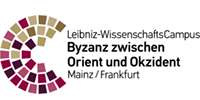The conference will present a fresh look at one of the most productive authors of the late antique / early Byzantine period and his extensive and multi-facetted oeuvre. The focus of the conference is on the question of what view of contemporary society(-ies) is offered. The broad theme of the conference makes space for a comparative-interdisciplinary approach.
Wide areas of the empire underwent a comprehensive demographic change from the fifth century onwards, while wars, natural catastrophes, theological controversies and interventions by ‘state’ structures also led to the development of different social and religious forms of communication and interaction. The ancient cities experienced a fundamental transformation, not just through church building, the role of the bishops in the cities and on behalf of rural areas, a restructuring of the central and local administration and altered economic forms and fiscal conditions. Often much reduced in size and with massive fortifications, they featured abandoned residential areas as well as formerly public buildings that were built over by private citizens and put to new uses. A new way of living and a new approach to life must have arisen, but, although many publications have noted this in its concrete cultural expressions, it has been granted hardly any space in scholarship as a phenomenon. The only explanatory key offered in recent scholarly approaches has been concepts like ‘anxiety’ as regards the masses and ‘mysticism’ as regards the elites; though this is indeed attractive and convincing, it is remains an attempt to grasp the zeitgeist ‘with one eye shut’. Out of the new (religious) forms and sites of communication and the plurality of the traditions – and not only through demographic change – a diverse range of new cultural practices arose in the sixth century. These distinctive regional and social forms stand in contrast to an ever more forcefully presented central authority (emperor, administration, army, patriciate, etc.).
At the conference we aim to examine this extremely dynamic sixth-century cultural milieu from a fixed point of departure (Procopius) and through four major complexes of themes:
1) One Society, Many Communities?, 2) Economic Life: Regional and Global Contexts; 3) Dynamics of Military and Civilian Spheres; 4) The World of the City: Space, Culture, Art.
Organized by Prof. Dr. Marietta Horster and Dr. Andreas Goltz
Program
Poster
Sponsorship
Leibniz-WissenschaftsCampus Mainz, Johannes Gutenberg-Universität: Forschungsschwerpunkt Historische Kulturwissenschaften und Zentrum für Interkulturelle Studien, Römisch-Germanisches Zentralmuseum, Landesmuseum Mainz













